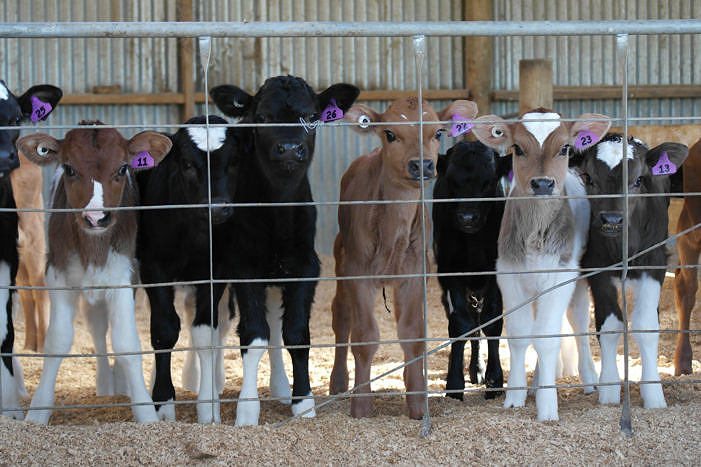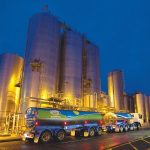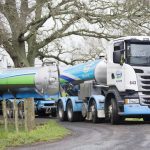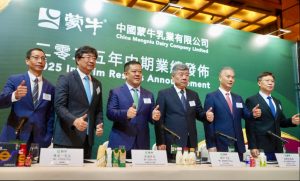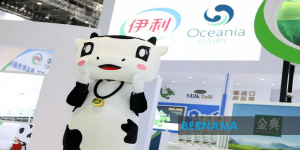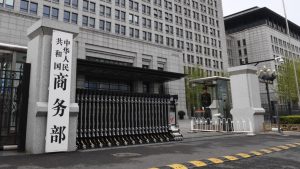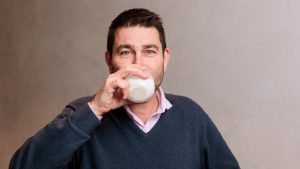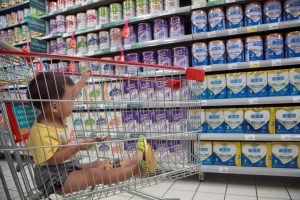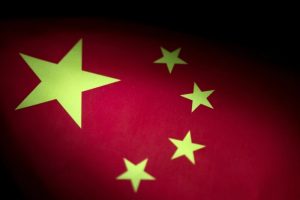
Some cows stand up, some lie down and others walk to the railing installed with a sprinkler system. The system can be automatically triggered and spray water to cool the cows, thus increasing their food intake and milk output, said 52-year-old Geng Tiehuan, owner of the farm in Mengguantun Village.
The farm is home to around 1,100 dairy cows and can produce around 16,000 kg of fresh milk each day. Geng’s business has also helped increase incomes for 50 local rural households.
Business today is far cry from how things were 14 years ago when Geng began raising cows. With traditional raising methods, the revenue of her cooperative could only keep it running, but was far from enough to withstand challenges brought by sick cows or milk price fluctuation.
As the profit had become lower and lower, some of Geng’s partners quit, which put more pressure on her.
By chance, Geng got to know a program called “Caring Action for Dairy Cows.” The program consists of many “cow nannies,” who are well-known experts in the dairy field. They can offer free technical help for cow keepers like Geng.
Launched in 2012, “Caring Action for Dairy Cows” was led by Lu Yongqiang, deputy head of Beijing’s general station of animal husbandry. Lu’s team, together with universities, research institutes and enterprises, applies technologies to solve practical problems for dairy farmers.
“As ‘cow nannies,’ we take care of cows like looking after babies to bring farmers tangible benefits,” Lu said.
Years ago, cows in Geng’s dairy farm were not mating. All of her attempts to solve the problem failed, and she decided to turn to “cow nannies.”
A total of 12 experts from different fields rushed to Geng’s farm, collecting samples in the sheds and conducting lab tests. They found the problem lied in the ratio of animal feed. After adjustments, the cows mated successfully.
Geng’s cows produced several tonnes of dung each day, which was costly to clean up and would breed bacteria and parasites. She accepted the advice of “cow nannies” by putting a layer of sawdust with fermented bacteria in the cowsheds. The feces can be decomposed and the living conditions of cows became more comfortable.
“Caring Action for Dairy Cows” has trained more than 70,000 technical and management staff since the program was launched, said Lu, adding that a total of 455 new technologies and products have been promoted by “cow nannies.”
Since 2009, Beijing has started to cultivate innovation teams, hoping to apply more advanced technologies in agricultural sectors. So far, a total of 10 such teams have been established in various industries including vegetable and edible fungi planting, and dairy cow and hog raising.
Thanks to “cow nannies,” Geng’s messy dairy farm has been transformed. “I plan to turn my farm into a tourist attraction where visitors can see how organic milk is produced,” Geng said.
